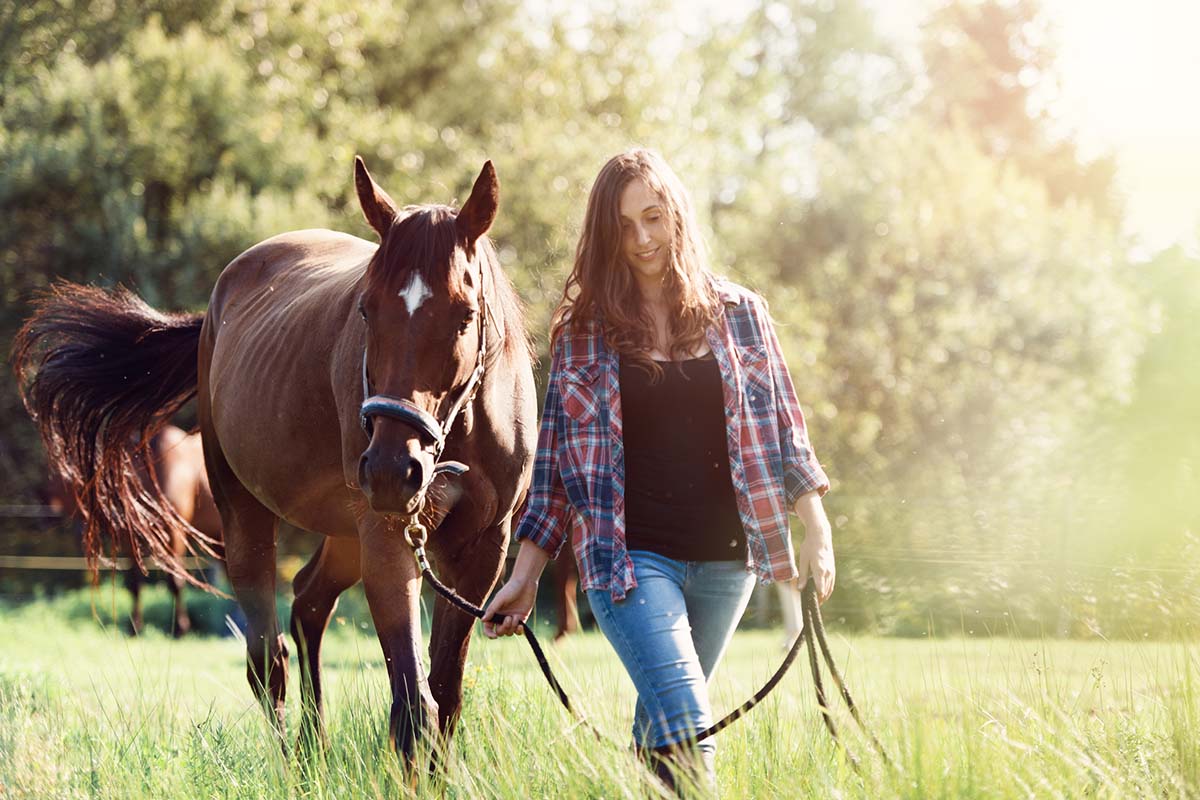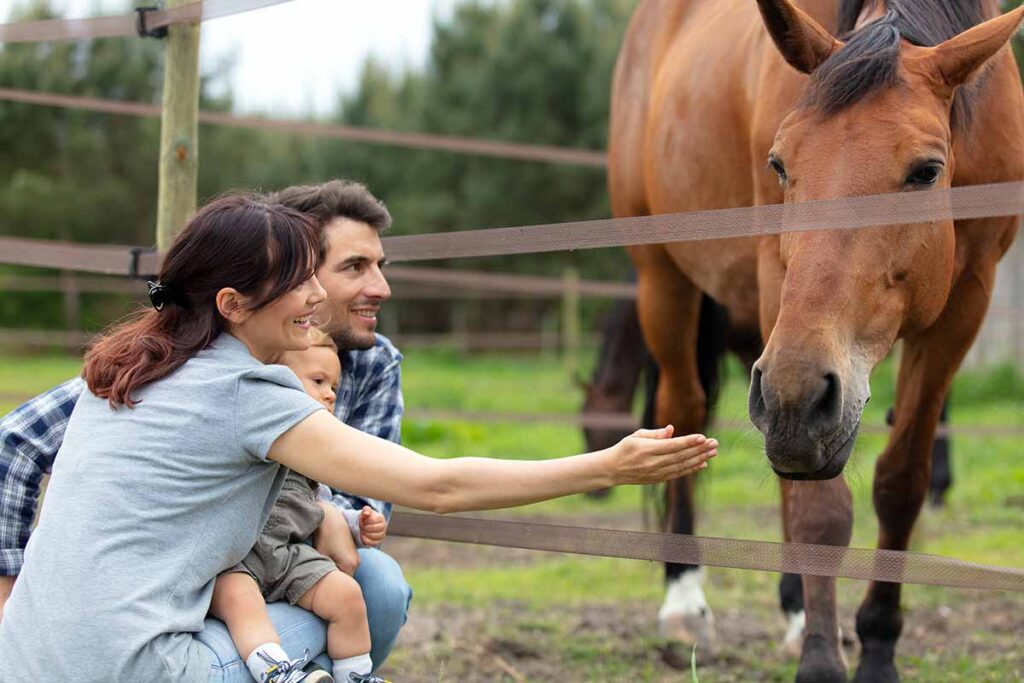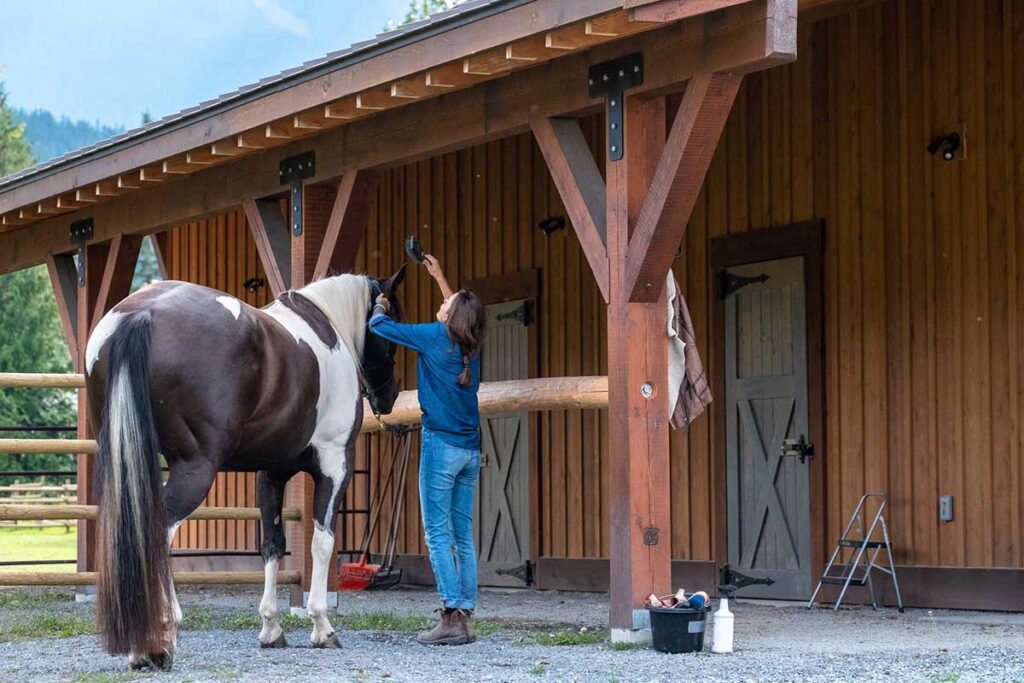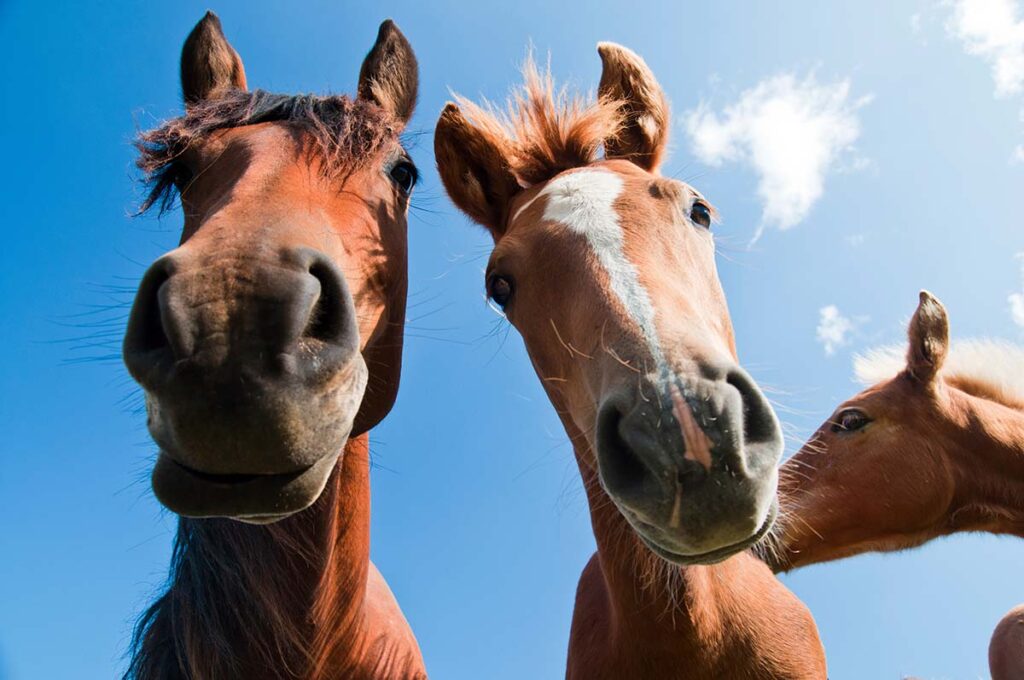Going out of town for a holiday or vacation should be something you look forward to with excitement. For horse owners who keep their horses at home, however, it can be a source of anxiety. With a cat or dog, you can book a stay at a boarding facility or ask a pet sitter or neighbor to pop in and tend to them. Horses require more specialized care, which can make going out of town challenging. But worry not! In this article, we’ll explain what to do with your horse when you leave town, from finding a trustworthy caretaker to preparing detailed instructions.
Steps to Take Before You Leave Town
If you board your horse at someone else’s property, you have fewer things to worry about when you leave town. Nonetheless, you’ll still need to take some steps in preparation:
- Provide the farm manager with the dates you’ll be gone and a reliable way to reach you.
- Restock any supplements, supplies, or medications that might be running low. If you provide your own feed, hay, or bedding, ensure your horse has more than enough of these essentials.
- Ask the caretaker or a fellow boarder to give your horse a once-over or pick his feet regularly while you’re gone.
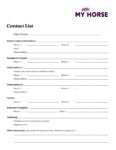
If you have a partial or self-care boarding arrangement, ask the property owner if you can pay for your horse to be in full care while you’re gone. Otherwise, make arrangements for another boarder or horseperson to perform daily tasks like feeding, watering, and stall cleaning.
For horses that live on your property, you have a few options:
- Hire a farm sitter: If you have multiple horses or animals, you might get peace of mind by hiring an experienced horseperson to stay at your place and care for animals and property while you’re gone.
- Find a part-time caretaker: If you don’t have a large herd and your horses are fairly low maintenance, you might simply ask a friend, neighbor, or other horseperson to stop by your farm twice a day for feeding, watering, turnout, and other basic chores.
- Find a boarding facility: If you don’t have someone who can tend to your horses at home, you might have to find a facility that will allow you to board them short-term. This is often the best choice if you’re going away for an extended period. Similarly, you might ask another horse owner if you can keep your horses at their farm.
Regardless of the scenario, make sure the person caring for your horses has horse experience and is comfortable handling them. Discuss your expectations and the duties they must perform while you’re away. And be prepared to pay for their services!
Also let your veterinarian know when you will be away. Give them your horse-sitter’s contact information, and make sure they have a credit card or form of payment available in case of an emergency. Ask if they need anything in writing, and set maximum financial authorizations for each horse.
Finding a Horse Sitter
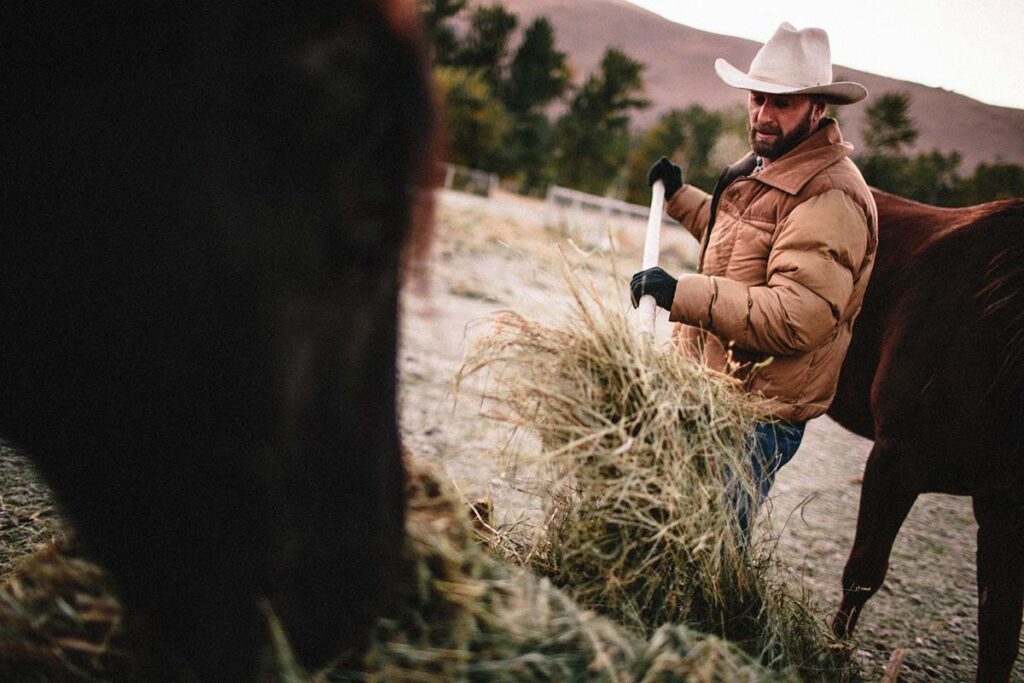
When choosing an individual to care for your horse while you’re out of town, it’s crucial to find someone who is qualified and trustworthy. Sources for finding a horse sitter include:
- Word of mouth: If you don’t have an obvious choice of horse sitter (e.g., close friend, family member, neighbor), ask other horse owners in your area for recommendations.
- Check with your horse care team: Your veterinarian, farrier, or trainer might know a vet tech or someone who is an experienced horse handler and can provide trustworthy care.
- Use online resources: Ask for recommendations from your local horse council, county extension office, 4H or Pony Club, and horse community groups on social media.
Start your search for a horse sitter months before your departure. This allows you plenty of time to find the right person and have them out to your property to meet the horses, learn where everything is, and walk through the routine.
If you’ll be hiring someone you don’t know (or know well) to care for your horse, interview them first. Ask them questions about their horse experience, physical ability to do things like lift hay bales, and how they’d handle potential situations.
Information to Provide the Person Caring for Your Horse
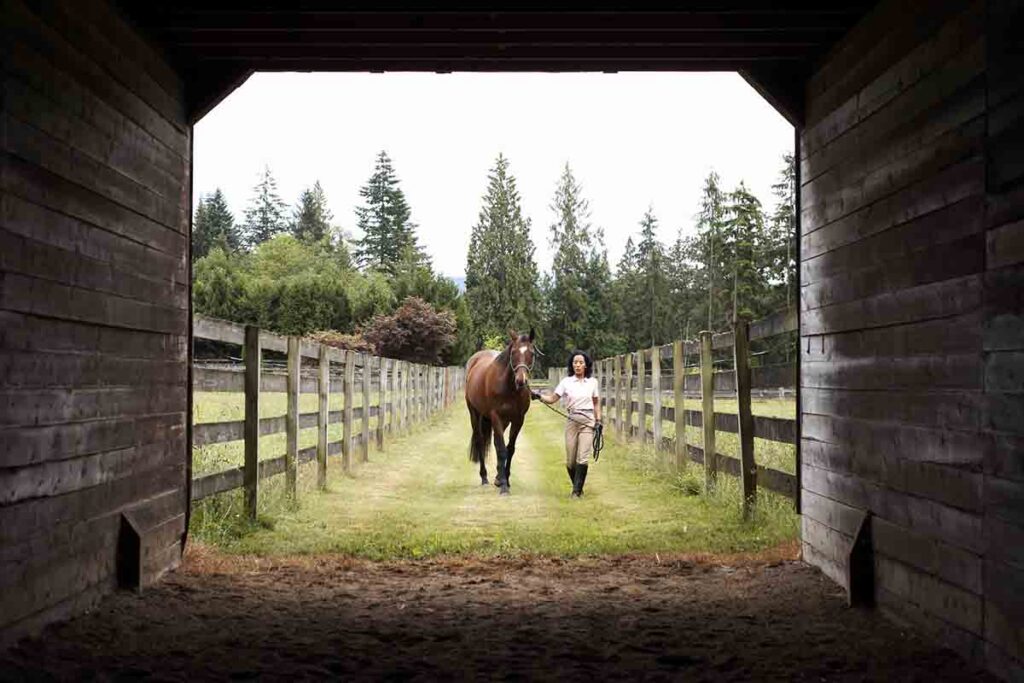
Once you’ve found a suitable horse sitter, it’s essential to provide them with all the necessary information to care for your horse properly. This includes:
- Your itinerary and contact info while you’re gone.
- Detailed daily care instructions, including feeding and watering, turnout schedules, and regular chores.
- Locations of feed, hay, supplements, supplies, and medications, as well as things like the water shutoff.
- Contact information for your veterinarian and farrier.
- Instructions in case of an emergency.
- Each horse’s medical history (i.e., current or past health issues like colic or lameness), medications, and how to administer those.
- If applicable, insurance company contact information and your policy number.
Make your horse-sitter’s job as easy as possible before you leave. For example, you might pre-portion your horse’s daily feed and supplements in labeled bags and pull enough hay out for the duration of your trip. If horses wear fly sheets, blankets, or grazing muzzles, have these clearly labeled and stored in convenient locations.
Take-Home Message
With proper preparation and planning, leaving your horse when you go out of town can be stress-free. The key is having an experienced and trustworthy caretaker, providing them with all the information and supplies they might need, and having a plan in place for emergencies. This way, you don’t have to worry about what to do with your horse when you leave town. You can enjoy your time away knowing your horse is in good hands.
Download: Horse Care Instructions and Contacts for Horse-Sitters
Are you enjoying this content? Sign up for My New Horse’s FREE newsletter to get the latest horse owner info and fun facts delivered straight to your inbox!

